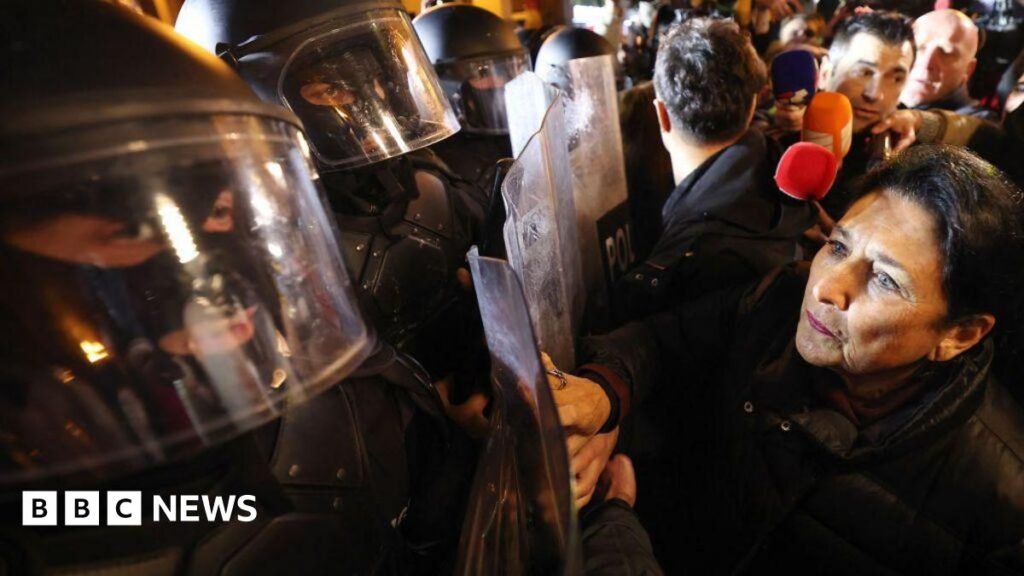She was seen as a supporter of a ruling party unpopular with many young people, and she blamed the brief war with Russia in 2008 on Georgia, which allowed itself to be provoked.
But as her presidential term progressed, Georgian Dream became increasingly authoritarian and anti-Western, cracking down on civil society and NGOs. He has refused to join Western sanctions against Russia following its full-scale invasion of Ukraine and has branded the West a “party of global war”, mocking his stated aim of joining the EU and NATO.
Zurabishvili openly challenged the government, believing that it has the support of the majority of the population of Georgia.
She vowed to veto the “foreign influence” bill, which mirrors Russian legislation passed under President Vladimir Putin, but the government passed it anyway, defying weeks of protests.
“The choice before Georgia is between independence or slavery, Europe or Russia,” she said in April.
She often addressed the protesters who gathered outside the parliament every evening for a month, speaking to them as the conscience of the nation against the Russian-friendly government.
Last month, she asked the riot police accused by the opposition of brutalizing protesters: “Do you serve Russia or Georgia?”
Many protesters who initially distrusted the president for coming to power with the support of the “Georgian Dream” came to respect her open resistance.
“Nobody expected her to be this good. She reflects our values,” said Irakli, a 34-year-old man who regularly participated in demonstrations. “She motivates us to fight.”
Ahead of the disputed October election, the government tried to impeach her for meeting with EU leaders without government permission. The attempt ultimately failed, but it was a sign of the showdown to come.
Zurabishvili called the elections, which returned “Georgian Dream” to power, “completely falsified.” She backed opposition parties’ calls for a repeat vote, angering senior party leaders.

